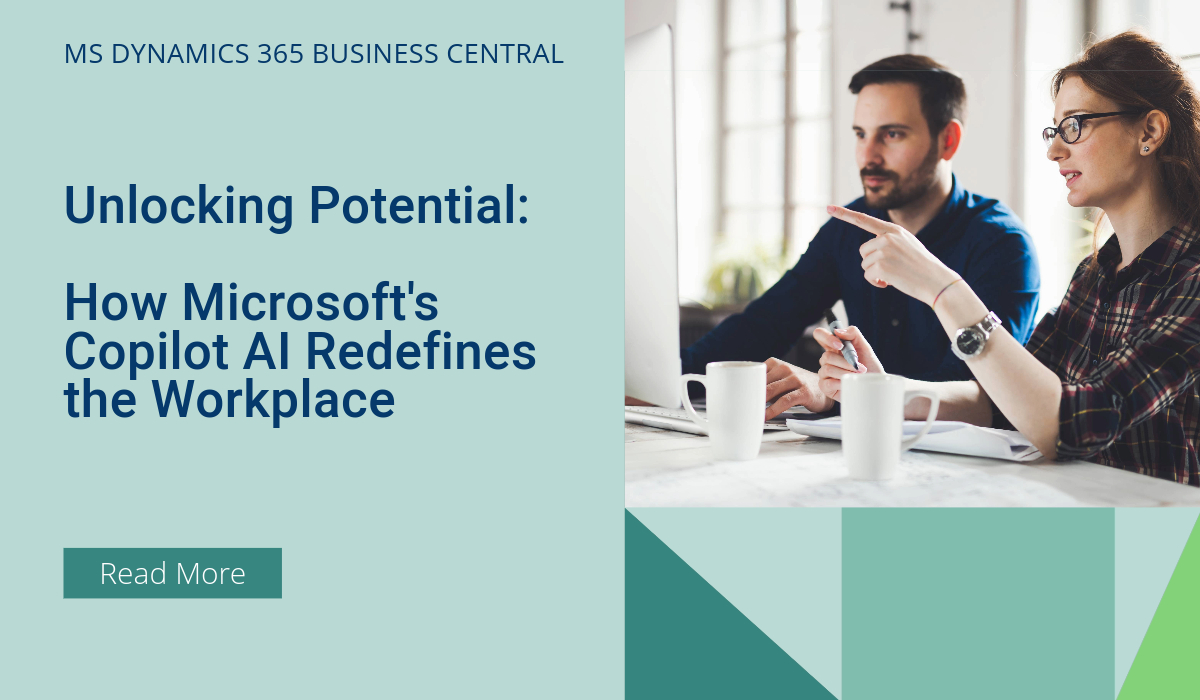
Unlocking Potential: How Microsoft’s Copilot AI Redefines the Workplace
In a groundbreaking move last year, Microsoft unveiled Microsoft 365 Copilot – a game-changing addition that’s imbued with potent generative AI prowess. Think of your daily digital companions like Word, Outlook and Teams getting a turbocharged AI boost. But what’s truly stirring is what this innovation signifies for our society and the profound shift it promises to usher into our work lives.
Late last year, Microsoft unleashed a treasure trove of revelations from its 2023 Work Trend Index report, aptly titled ‘Will AI fix work?’. We’ve combed through this wealth of data and insights to distil the most exciting revelations.
The report paints a vivid picture of a world where our work pace has surged ahead, leaving us racing to catch up. It’s a whirlwind that’s not just challenging our stamina but also stifling our capacity for innovation. Enter the next-generation AI. They’re poised to swoop in and hoist the burdens of work off our shoulders.
For organisations bold enough to embrace this AI revolution, it’s a gateway to unlocking uncharted realms of creativity and skyrocketing productivity. In the words of Microsoft’s visionary CEO, Satya Nadella: ‘This new generation of AI will remove the drudgery of work and unleash creativity’.
The report shares 3 key insights for business leaders as they look to understand and adopt AI for their organisation:
Digital debt is costing innovation. We’re all trapped in the labyrinth of digital debt, drowning amidst a deluge of data, emails and chats. We’re racing against time to keep up. Yet, amidst this chaos lies a golden opportunity to transform our communication landscape into a productivity powerhouse. Every moment squandered on wrangling this digital debt is a moment robbed from the realm of creativity. Startlingly, a staggering 64% of our workforce find themselves perpetually starved for time and energy, a plight that shackles their capacity for innovation and strategic thinking. Those employees struggle 3.5 times more with thinking strategically or being innovative.
There’s a new AI-employee alliance. For many employees, the promise of relief outweighs the fears of job loss. Most managers are looking to empower employees with AI, not replace them. While 94% of people say they’re worried AI will replace their jobs, 70% of them would happily delegate as much work as possible to AI in order to lessen their workloads. Leaders are two times more likely to say that AI would be most valuable in boosting productivity – rather than cutting headcount.
Employees need AI aptitude. This AI revolution means that every employee will need new core competencies, such as AI prompt engineering. 82% of leaders anticipate employees will need new skills. In the US, jobs on LinkedIn that mention ChatGPT have increased by 79%. This new, in-demand and AI-centric skillset will have ripple effects across everything from CVs to job postings.
“The pace and volume of work have increased exponentially and are outpacing humans’ ability to keep up,” said Microsoft’s Jared Spataro. “In a world where creativity is the new productivity, digital debt is more than an inconvenience – it’s a threat to innovation. Next-generation AI will lift the weight of work and free us to focus on the work that matters.”
Are you interested in introducing AI in your organisation? Maybe you’re looking for inspiration?
Get in touch today for an inspiring first meeting: https://bit.ly/3k71yLx
March 26, 2024
RECENT POSTS
Business Central & Returns Management
Returns management is the process of handling returned products efficiently to ensure a seamless experience for both customers and businesses. As a comprehensive ERP system, Business Central has a number of standard modules [...]
Business Central How-To: FastTabs & FactBoxes
Business Central, a user-friendly ERP system, has plenty of terminologies specific to the product, and if you’re moving across to BC from some other program, or even considering an upgrade from NAV to BC, it [...]
How Does Business Central Handle Inventory Management?
Inventory Management is a module in Business Central that helps SMBs manage their inventory and other operations within a single platform. SMBs can track, manage, and optimise stock levels across locations. Microsoft Dynamics [...]


